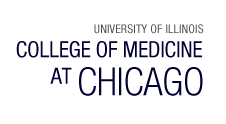Soy Protein in Preventing Recurrent Cancer in Patients Who Have Undergone Surgery for Stage II Prostate Cancer
| Status: | Recruiting |
|---|---|
| Conditions: | Prostate Cancer, Cancer |
| Therapuetic Areas: | Oncology |
| Healthy: | No |
| Age Range: | 40 - 75 |
| Updated: | 10/2/2013 |
| Start Date: | December 2006 |
Randomized Placebo-Controlled Adjuvant Study of Prevention of Prostate Cancer Recurrence After Radical Prostatectomy by Soy Protein Isolate
RATIONALE: Soy protein may help prevent prostate cancer recurrence in patients who have
undergone surgery for prostate cancer.
PURPOSE: This randomized phase II/III trial is studying how well soy protein works and
compares it to a placebo in preventing recurrent cancer in patients who have undergone
surgery for stage II prostate cancer.
OBJECTIVES:
- Determine whether soy protein isolate reduces the PSA failure rate and time to PSA
failure within 2 years following radical prostatectomy in patients who are at high risk
for prostate cancer recurrence.
- Determine the effects of soy protein isolate on intermediate biomarkers of steroid
hormone axis (testosterone, estradiol, and SHBG) and thyroid activity (T3 and T4).
- Determine the effects of soy protein isolate on intermediate biomarkers of apoptosis
(soluble Fas and Fas-ligand), angiogenesis (VEGF and bFGF), antioxidant activity
(8-isoprostanes), and IGF axis (IGF-1 and IGFBP-3).
- Compare patients who are equol producers to those who are non-producers.
OUTLINE: This is a multicenter study. Patients are stratified according to hospital/clinic
site (NYU vs UIC or Jesse Brown VA Medical Center vs other sites), number of high-risk
characteristics (1 vs > 1), and race (African American vs non-African American [i.e.,
non-Hispanic White, Hispanic, Asian, and other]). Patients are randomized to 1 of 2
treatment arms.
- Arm I: Patients receive an oral soy protein isolate beverage once daily.
- Arm II: Patients receive an oral casein placebo beverage once daily. Treatment in both
arms continues for up to 2 years in the absence of disease progression or unacceptable
toxicity.
Blood samples are collected periodically for biomarker laboratory studies. Samples are
analyzed to measure PSA levels by Tosoh PSA assay; cholesterol levels; isoflavone and equol
concentrations by HPLC and ESA; and indicators of steroid hormone axis (testosterone,
estradiol, and SHBG), indicators of thyroid activity (T3 and T4), indicators of apoptosis
(soluble Fas and Fas-ligand), indicators of angiogenesis (VEGF and bFGF), indicators of
oxidative stress (8-isoprostanes), and indicators of IGF axis (IGF-1 and IGFBP-3) by ELISA.
DISEASE CHARACTERISTICS:
- Diagnosis of prostate cancer
- Clinically localized (T1c or T2) disease
- At high risk for recurrence, as defined by ≥ 1 of the following:
- Preoperative PSA > 20.0 ng/mL
- Seminal vesicle invasion
- Extracapsular extension (excluding the bladder neck)
- Positive surgical margins (excluding apical margins)
- Micrometastases in any removed pelvic lymph nodes
- Final Gleason score of ≥ 8
- Must have undergone radical prostatectomy for prostate cancer within the past 4
months
- Must have an undetectable PSA (< 0.07 ng/mL) at baseline, as measured by Tosoh PSA
assay
- No clinical evidence of locally recurrent or metastatic disease
PATIENT CHARACTERISTICS:
- No significant intake of soy (i.e., more than once a week) at baseline including, but
not limited to, any of the following:
- Vegetarians who regularly consume soy products (e.g., tofu)
- Individuals with customary Asian dietary habits, including regular intake of soy
products
- Individuals who use soy-based milk replacements
- No anemia, iron deficiency problems, or subclinical iron deficiency at baseline
- No diabetes
- No thyroid disease
- No requirement for a sodium-free diet
- No substantive tendency to be constipated (i.e., ≥ grade 2 constipation experienced
regularly)
- No medical problem that would preclude the consumption of the soy containing beverage
powder, including allergies against soy (or milk protein)
- No concurrent major disease, including major mental disease or major substance abuse
problems
- No significant side effects from medication
PRIOR CONCURRENT THERAPY:
- See Disease Characteristics
- No concurrent radiotherapy or hormonal therapy
- No other concurrent adjuvant therapy for prostate cancer
We found this trial at
1
site
1801 West Taylor, Suite 1E
Chicago, Illinois 60612
Chicago, Illinois 60612
312.355.1625

University of Illinois Cancer Center The University of Illinois Cancer Center is dedicated to reducing...
Click here to add this to my saved trials